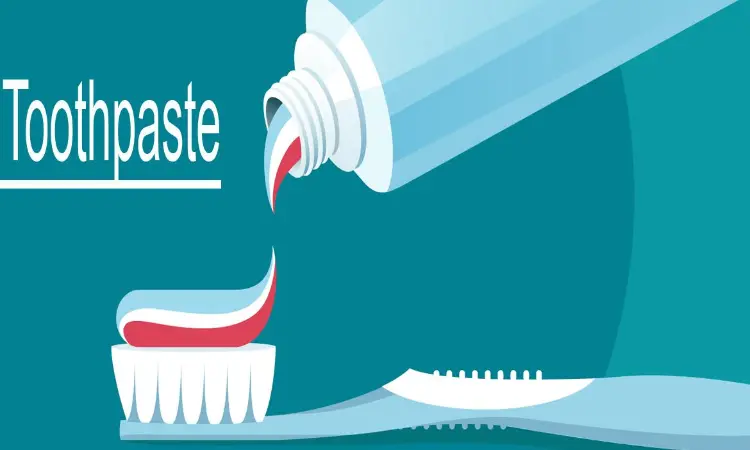- Home
- Medical news & Guidelines
- Anesthesiology
- Cardiology and CTVS
- Critical Care
- Dentistry
- Dermatology
- Diabetes and Endocrinology
- ENT
- Gastroenterology
- Medicine
- Nephrology
- Neurology
- Obstretics-Gynaecology
- Oncology
- Ophthalmology
- Orthopaedics
- Pediatrics-Neonatology
- Psychiatry
- Pulmonology
- Radiology
- Surgery
- Urology
- Laboratory Medicine
- Diet
- Nursing
- Paramedical
- Physiotherapy
- Health news
- Fact Check
- Bone Health Fact Check
- Brain Health Fact Check
- Cancer Related Fact Check
- Child Care Fact Check
- Dental and oral health fact check
- Diabetes and metabolic health fact check
- Diet and Nutrition Fact Check
- Eye and ENT Care Fact Check
- Fitness fact check
- Gut health fact check
- Heart health fact check
- Kidney health fact check
- Medical education fact check
- Men's health fact check
- Respiratory fact check
- Skin and hair care fact check
- Vaccine and Immunization fact check
- Women's health fact check
- AYUSH
- State News
- Andaman and Nicobar Islands
- Andhra Pradesh
- Arunachal Pradesh
- Assam
- Bihar
- Chandigarh
- Chattisgarh
- Dadra and Nagar Haveli
- Daman and Diu
- Delhi
- Goa
- Gujarat
- Haryana
- Himachal Pradesh
- Jammu & Kashmir
- Jharkhand
- Karnataka
- Kerala
- Ladakh
- Lakshadweep
- Madhya Pradesh
- Maharashtra
- Manipur
- Meghalaya
- Mizoram
- Nagaland
- Odisha
- Puducherry
- Punjab
- Rajasthan
- Sikkim
- Tamil Nadu
- Telangana
- Tripura
- Uttar Pradesh
- Uttrakhand
- West Bengal
- Medical Education
- Industry
How triclosan found in toothpaste, is triggered to harm the gut, reveals study

A new study conducted in mice demonstrates precisely how triclosan, an antimicrobial found in toothpaste, toys and thousands of other products, can trigger gut inflammation.
An international team of researchers led by the University of North Carolina at Chapel Hill, the University of Massachusetts Amherst and Hong Kong Baptist University identified the bacteria, and even specific enzymes, that trigger triclosan's harmful effects. Moreover, studies in mice suggest these bacterial enzymes can be blocked from driving intestinal damage.
The findings were published in Nature Communications.
"By identifying the culprit bacteria, new approaches could be developed for the diagnoses, prevention and treatment of inflammatory bowel diseases," said study author Matthew Redinbo, a chemistry and microbiology professor at the UNC-Chapel Hill College of Arts & Sciences and UNC School of Medicine.
Previous research has shown triclosan's toxicity, but the new study provides a closer look at the changes caused in the gut's microscopic population.
Researchers connected specific gut microbial enzymes, notably gut microbial beta-glucuronidase (GUS) proteins, with triclosan and showed these enzymes drive triclosan to wreak havoc in the gut.
Knowing which bacterial proteins were the culprits, the team used a microbiome-targeted inhibitor to block triclosan processing in the gut. Blocking this process in mice prevented damage to the colon and symptoms of colitis, a form of inflammatory bowel disease.
The study provides new clues about management of IBD among the growing number of people diagnosed with the disease. IBD can be managed for long periods of time only to flare up out of seemingly nowhere.
Study authors suggest the need for better understanding of the impact of environmental chemicals on gut health.
Triclosan used to be widely available in antibacterial soaps marketed to consumers. But in 2016, the Food and Drug Administration ordered it removed from handwashing products used in homes and hospital settings because of concerns it contributed to more resistant bacteria.
But triclosan remains ubiquitous as an ingredient added to cosmetics, yoga mats and other athletic clothes and gear to reduce bacterial contamination. It's also routinely used in many toothpastes – with FDA approval -- since it has been found to prevent gingivitis.
Triclosan appears to be readily absorbed in the gastrointestinal tract, leading study authors to write, "the safety of triclosan and related compounds should be reconsidered given their potential for intestinal damage."
The National Institutes of Health, through grants to several authors, the Hong Kong Research Grants Council and the National Science Foundation funded the study, "Microbial enzymes induce colitis by reactivating triclosan in the mouse gastrointestinal tract."
Hina Zahid Joined Medical Dialogue in 2017 with a passion to work as a Reporter. She coordinates with various national and international journals and association and covers all the stories related to Medical guidelines, Medical Journals, rare medical surgeries as well as all the updates in the medical field. Email: editorial@medicaldialogues.in. Contact no. 011-43720751
Dr Kamal Kant Kohli-MBBS, DTCD- a chest specialist with more than 30 years of practice and a flair for writing clinical articles, Dr Kamal Kant Kohli joined Medical Dialogues as a Chief Editor of Medical News. Besides writing articles, as an editor, he proofreads and verifies all the medical content published on Medical Dialogues including those coming from journals, studies,medical conferences,guidelines etc. Email: drkohli@medicaldialogues.in. Contact no. 011-43720751


